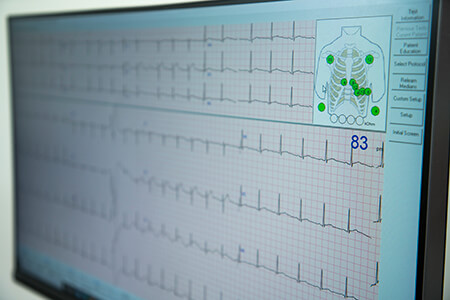Electrocardiogram (ECG) is a simple test that records the electrical rhythm of the heart

Test Description
What is it?
An electrocardiogram (ECG) is a simple, non-invasive test that detects heart abnormalities by measuring the electrical activity generated by the heart as it contracts. The machine that records the patient’s ECG is called an electrocardiograph. The electrocardiograph records the electrical activity of the heart muscle and displays this data as a trace on a screen or on paper. This data is then interpreted by a medical practitioner. If you need an electrocardiogram and you have a valid referral, then you can visit any of our four diagnostic centres.
Why do I need this test?
It may be used to investigate the following;
- Symptoms of myocardial ischaemia ie: chest pain, dyspnoea, diaphoresis.
- Suspected cardiac arrhythmias i.e. palpitations.
- Cardiovascular syncope (brief losses of consciousness).
- Investigation of hypertension.
- Cardiac murmurs or Seizures.
We bulk bill all valid referrals
Short wait times when you book an appointment with rapid results.
What to expect
A technician will place electrodes on your chest, arms and legs whilst lying flat on the bed. You may need to have a small amount of chest hair shaved off. The procedure will require you to remove the clothing from your upper body. A gown will be provided to you to change into if required.
What are the risks?
This is a very safe non-invasive test. Some patients may experience a minor skin irritation from the sticky electrodes but this is rare.
Preparation Details
(Approximately 15 minutes duration)
No Preparation Required.
What Happens After The Test?
The results of the ECG will be made available to your referring Medical Practitioner. Urgent results will be communicated directly by telephone.
Why wait or pay too much for diagnostic tests?